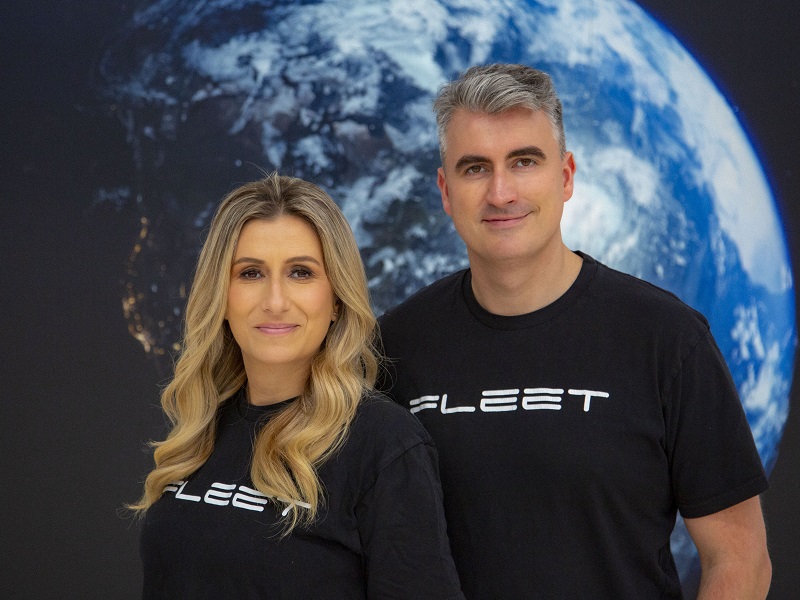Fleet Space Technologies has closed a $150 million Series D funding round, bringing the nanosatellite startup’s valuation to more than $800 million – twice what it was worth less than 18 months ago.
The Adelaide-based company announced its largest-ever round on Thursday, revealing plans to use the new funding to further develop its critical minerals exploration platform, ExoSphere.
Ontario government-owned Teachers’ Venture Growth led the Series D raise, marking a change from earlier rounds led by Australian VC firms Blackbird, Artesian Venture Partners, Grok and Hong Kong’s Horizons Ventures.
But existing investors Blackbird, Hostplus, Horizons Ventures, Artesian Venture Partners and Alumni Ventures also returned in the latest round to join Teachers’ Venture Growth, the late-stage venture and growth investment arm of Ontario Teachers’ Pension Plan.

Founded in 2015, Fleet Space has spent the last nine years developing nanosatellites mainly for mining applications, with its technology now used by more than 40 companies across five continents.
Its nanosatellites are used to locate critical minerals deposits from space, and in 2022 the company added edge computing and artificial intelligence into the mix through its ExoSphere platform.
ExoSphere, which launched in the months after its $40 million Series B raise in 2021, allows the likes of Rio Tinto and Barrick Gold to conduct 3D subsurface mapping up to 2.5 kilometres in depth to search for critical minerals without breaking ground.
Fleet will use the new funding to expand the capabilities of ExoSphere, which co-founder and chief executive Flavia Tata Nardini said unlocks “humanity’s potential for making extraordinary discoveries with less environmental impact”.
“There are two versions of the future,” Ms Tata Nardini, a former propulsion engineer at the European Space Agency, said announcing the company’s latest funding round on Thursday morning.
“One where we bend the latest advances in space, AI, and big data towards building a clean energy future and another where we risk net-zero targets falling out of reach as the rate of new discoveries of energy transition minerals continues to decline.”
Teachers’ Venture Growth senior managing director Rick Prostko said ExoSphere has the “potential to sustainably transform the industry”, replacing what he described as inefficient critical minerals exploration methods.
“The ability to meet the rapidly increasing demand for critical minerals presents a significant challenge to achieving global net-zero targets,” said he said.
“Fleet Space addresses this with advanced 3D subsurface imaging and AI analysis tools, which have the potential to sustainably transform the industry. We are proud to support the multidisciplinary team at Fleet Space in their efforts to accelerate the global energy transition.”
The $150 million Series D comes less than 18 months after the company’s $50 million Series C raise in May 2023 and amid “reduced activity in the venture ecosystem”, according to Fleet chief financial officer and chief investment officer Federico Tata Nardini.
“This funding is not just a testament to Fleet Space’s growth, strong investor confidence, and sustained innovation in core technologies needed to address dual challenges of climate change and mineral exploration,” he said.
“It’s a signal that in a period of turbulent macroeconomic conditions, the shared commitment to build technologies needed for Earth’s clean energy future combined with solid business execution can attract the right partners.”
Fleet also plans to use technology – namely the seismic sensors – developed for ExoSphere in its forthcoming SPIDER variant, which the company plans to deploy on the Moon in 2026 in a bid to better understand the lunar subsurface.
“A bold new chapter in the history of space exploration is about to begin and we are positioned to play a significant role as humanity boldly ventures deeper into our solar system,” Fleet Space co-founder and chief executive Matt Pearson added.
Do you know more? Contact James Riley via Email.

